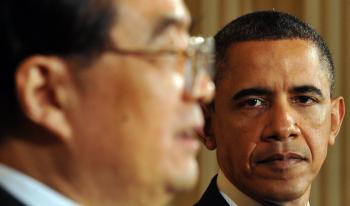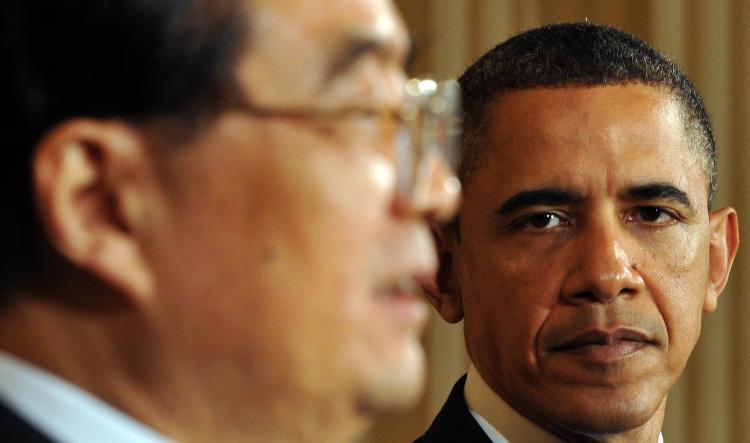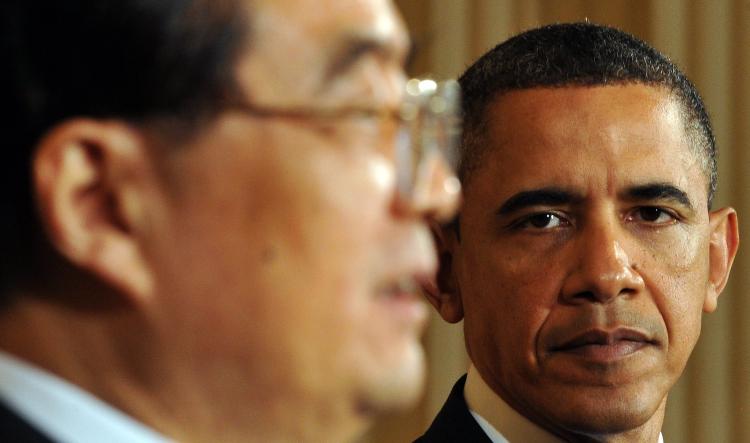China’s Ambition to Dominate Trade Worldwide
Breaking into the Chinese market is riddled with challenges like in no other market. U.S. businesses are flocking to China in pursuit of rising earnings, only thinking that it is one of the largest markets worldwide.

President Obama listens to Chinese leader Hu Jintao, as he answers a question about the human rights issue in China during a press conference in the East Room at the White House in Washington, DC, on January 19. Jewel Samad/Getty Images
|Updated:





